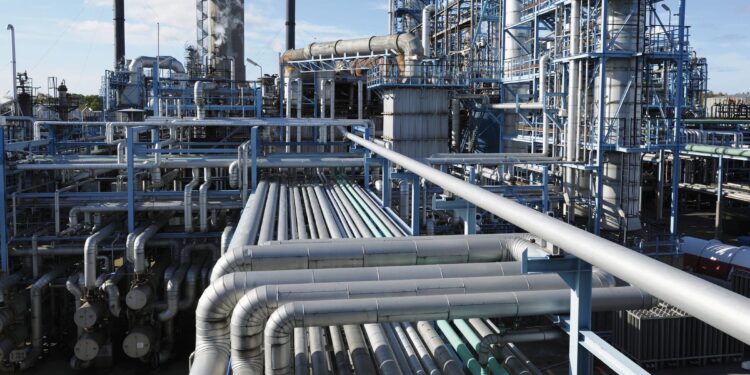The price of gasoline (petrol, to us Britons) has reached record highs in both Europe and the U.S. Americans are now paying almost $5 per gallon at the pump, compared to half that amount at the start of 2020.
Two major reasons for these price spikes are well known. First: OPEC slashed production during the pandemic in response to cratering demand, and hasn’t yet boosted output to pre-pandemic levels. Second: sanctions against Russia, as well as self-imposed restrictions on some exports, have reduced total oil production and fuelled uncertainty in the global market.
Okay, if the supply of oil is down, but demand is back up, then all we have to do is pump more oil, and the price of gasoline will fall – right? Not so fast. There’s an additional reason why the price of gasoline is so high: lack of refining capacity.
In simple terms, the way the oil market works is as follows: producers pump oil out of the ground; they then send it to refineries, which ‘crack’ the oil into gasoline, diesel and jet fuel; these refined products are then sold to the market. Which means that – regardless of how much oil is actually produced – the supply of gasoline is limited by refining capacity.
As commodities analyst Javier Blas notes, we can tell that refining capacity matters by looking at the ‘crack spread’ – the difference between the price of crude oil and the price of refined products.
In January of 2020, crude oil was trading at $65 per barrel, while the price at the pump was $109 per barrel. (To get the price at the pump ‘per barrel’, you simply multiply the price per gallon by 42.) As of today, crude oil is trading at $122 per barrel, while the price at the pump is $209 per barrel. This means the ‘crack spread’ has increased from $44 per barrel to $87 per barrel. (Note: there are more appropriate measures of the ‘crack spread’; I used this one for ease of explanation.)
Since the end of 2019, global refining capacity has dropped by about 2 million barrels a day. Why?
Dozens of refineries in the U.S. and Europe were shuttered during the pandemic – when they were simply not profitable to operate. And while new ones have been built in China, “that capacity is effectively out of reach of the global market”, Blas tells us.
So why don’t we just build more refineries, or reopen the ones that are closed? It’s not quite that simple, as both of these things take time. And in any case, companies are reluctant to make the costly investments that would be required to meet new environmental regulations.
The upshot is that even if Biden manages to persuade the Saudis to pump more oil, the price of gasoline is unlikely to fall dramatically any time soon.












To join in with the discussion please make a donation to The Daily Sceptic.
Profanity and abuse will be removed and may lead to a permanent ban.
Snake-infested jungle and snake-infested geopolitics.
Stock up on silicon chips and microprocessors.
Good article on “The Federalist” web site on three possible ways CCP could strike Taiwan.
https://thefederalist.com/2025/04/03/3-ways-china-could-strike-taiwan-and-what-it-means-for-the-u-s/
Have you seen the number of companies The Federalist sells your data to? Do not click on the link above if you value your privacy
Cancel Net Zero and we can crush the Chinese economy.
The Chinese economy is crashing as foreign investors move their supply chains to Vietnam, India and Mexico. Xi PingPong needs a foreign war to hold on to power. I would not advise booking a holiday in Taiwan.
‘Crashing’? It must be terrible when your economy only grows 5% per year
Taiwan is part of China as agreed by the international community.
The US will be committing suicide if they try to defend Taiwan.
China has every right to take Taiwan back.
I think this action is unwise whilst Taiwan does not have a seat in the UN. Resolution 2758 makes it clear that Taiwan is a state of China, and USA is a signatory of that.
I suppose in that case, Britain has every right to take Ireland back
Yes we do given Ireland is a base for a hostile enemy called the German Empire (some call it the ‘EU’).
Ireland was part of the UK more recently than China had control over Taiwan. Except for a few years, Taiwan was also not considered to be an actual province of China, rather it was an overseas protectorate like the Chagos Islands or the Falklands.
I don’t believe this is how the UN sees it. Both the UN and the USA have a One Nation policy with regard to mainland China and Taiwan ie they are parts of the same country.
Does the UN not allow Eire an independent seat, or do they still view Southern Ireland as a part of UK. Of course Ireland is classed as an independent (as far as that is possible in the EU) country and your argument doesn’t stand.
Lomborg may be a tad optimistic but he has been a source of common sense for years over Climate Change with his cost/benefit approach